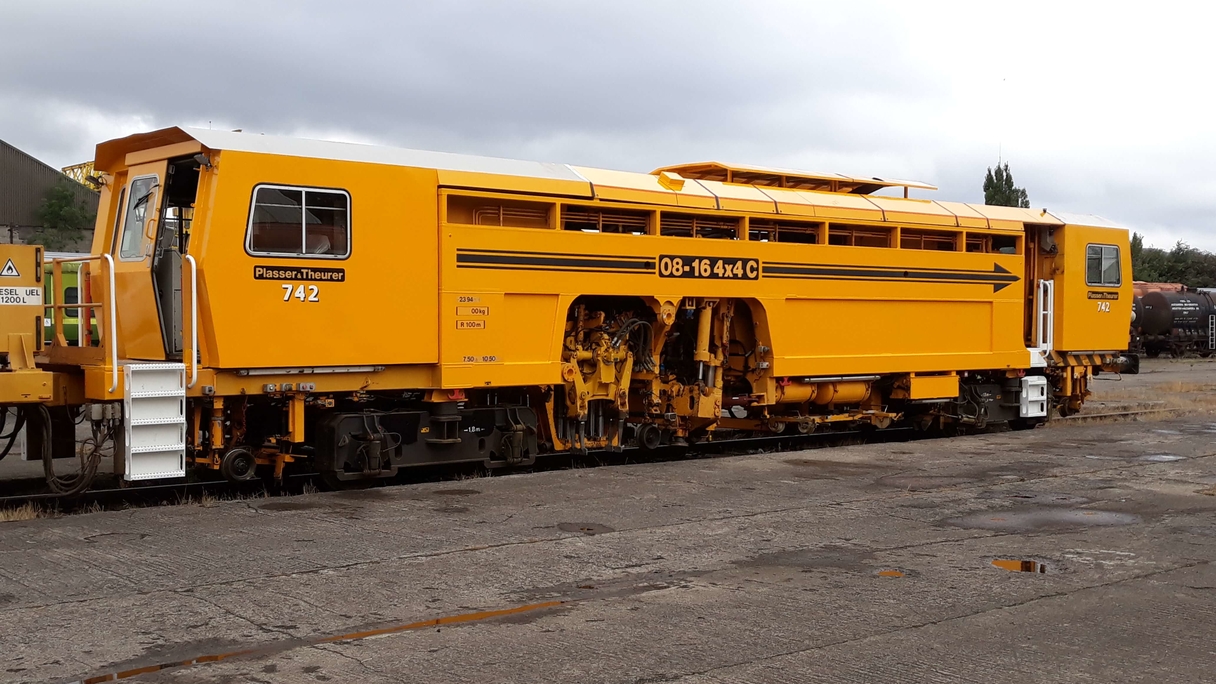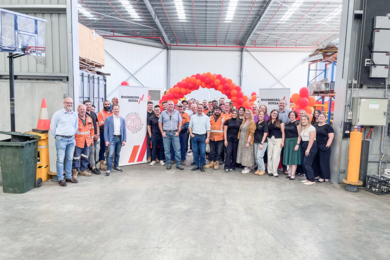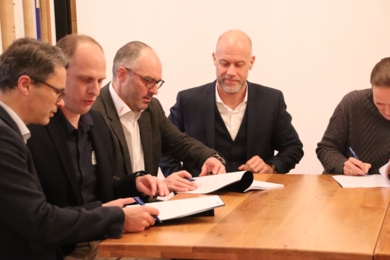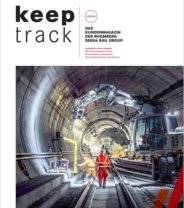Rhomberg Sersa Ireland streamlining the tamping process for its client Iarnród Éireann Irish Rail
The continuous Improvement Group (CIG) is a joint group comprising staff from Rhomberg Sersa Ireland (RSIE) and Iarnród Éireann Irish Rail (IÉ). The group was set up to overcome complex issues, increase performance and improve processes for the benefit of all.
CIG’s most recent task is to investigate a concern raised by IÉ over the lifting performance of 08 4X4 Compact machines in design mode with objectives set to investigate and find a sustainable solution for both parties.
The project was requested by Tom Ruane, Infrastructure Production Manager with Irish Rail’s Chief Civil Engineer department and Billy Stamp, RSIE MD. It was jointly led by Gavin Cooper, OTM Program Manager at IÉ, and Darryl Gwilliam, CIG and Digitisation Manager at RSIE with the involvement of RSIE and IE technical and practitioner staff.
During the research phase the team discovered that the issue has been present for several years. At the request of IÉ, the previous OTM contractor was tasked to investigate and find a solution. The conclusion of that study was that from a machine perspective there were no lifting discrepancies between On Track Machines (OTMs) and that the 08 Compact Tamping machines performed within tolerance. Nevertheless, the issue continued to be believed by front line IE engineering staff to persist and required performance was not consistently being achieved by Compacts in design mode.
Considering the findings of the previous study, the CIG team decided to apply the law of marginal gains. The main processes and machinery appeared to work on their own but when combined, they did not - this has caused frustration and created a negative opinion regarding OTM outputs.
The principle of marginal gains is to review, test and improve all elements of a process, then apply small incremental improvements – this type of performance analysis will amount to a significant improvement and will create a positive, culture of improvement.
The working group found several areas that could be improved. It is felt that over time, habit and assumption caused confusion and created disjointed work practices. Due to the complexity of inputs and the quantity of personnel involved, the group decided to apply a systematic phased approach to ensure that the improvement is planned and tracked effectively.
Phase 1: Document the as-is – Capture the current output of the system without systemic or practice change. This will give the group a baseline to prove the improvement
Phase 2: Integrate – To make the changes to the system and track the results
Phase 3: Standardise – Once the integration phase has been proven, each element will be standardised to ensure that working practices are controlled.
Phase 4: Train – The standardisation stage will require training and a competency will be created and managed.
Phase 5: Review (ongoing) - The CIG team will form a quality check and review timetable to cement the collaborative, improvement culture.
This project is set to complete in July 2022 with each tamping machine tested, results documented and reviewed / reported on, to ensure that the improvement and the culture is created successfully and maintained accordingly. Key to a successful outcome of the project is proper promulgation to all interested parties of the findings and new working processes. This will be assisted by Amanda Dolan, acting RSIE Marketing and Communications Manager.
Special thanks to Sean Ward, Damien Farrington from RSIE – Niall McNamarra, Trevor Conroy & Liam Hackett from IÉ for their contributions to the project.




